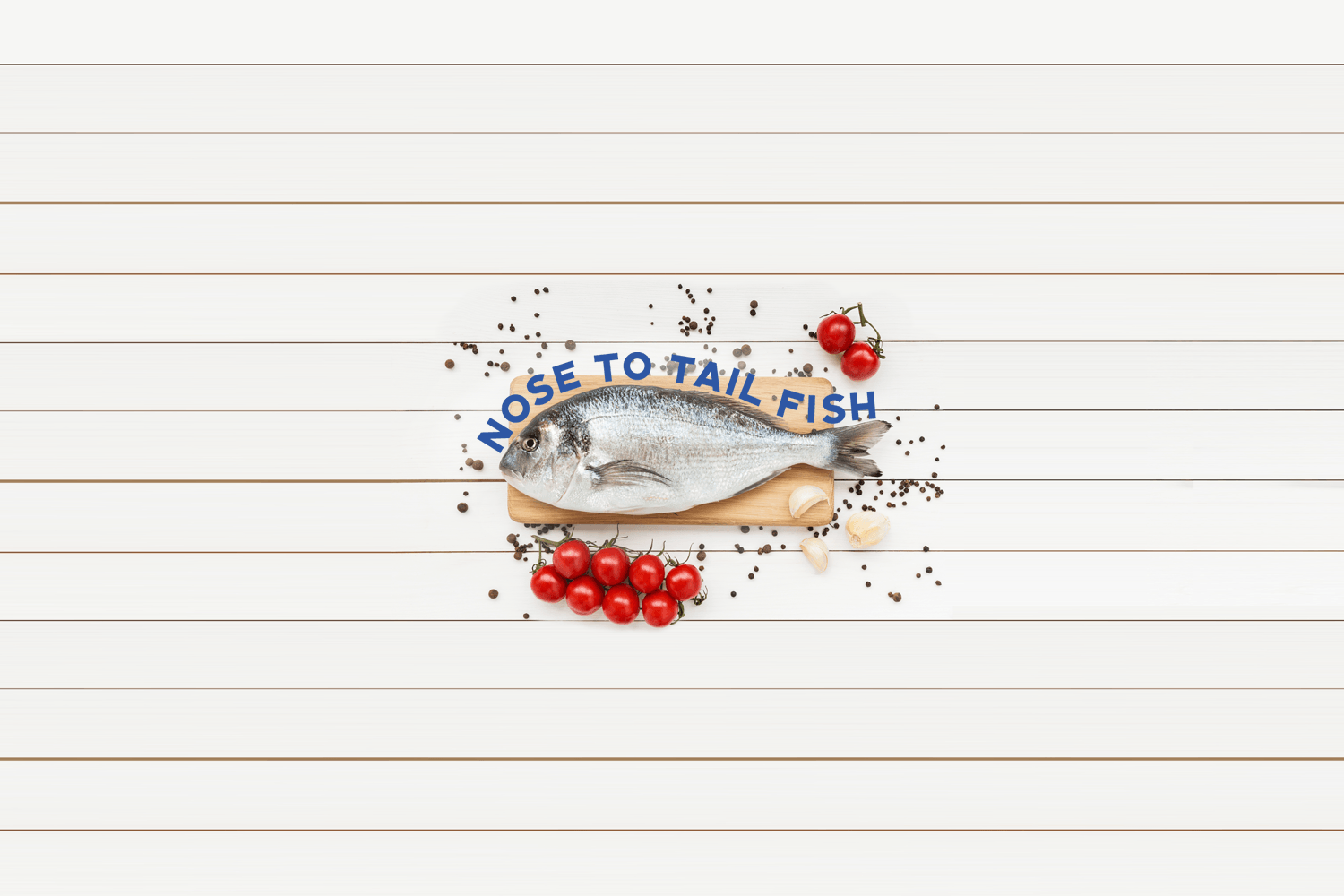Bycatch and whole fish concepts from around the world.
Text: Maaike de Reuver and Carlotta de Toni | Music: Blue Moon - Engine-EarZ Experiment, Kate Havnevik
Fish is one of the most versatile products in our diet. However, many chefs do not know how to best make use of all parts of a fish in a dish, and many companies do not know how to best breed fish. These concepts do. These are some of the world’s latest sustainable concepts when it comes to fish.
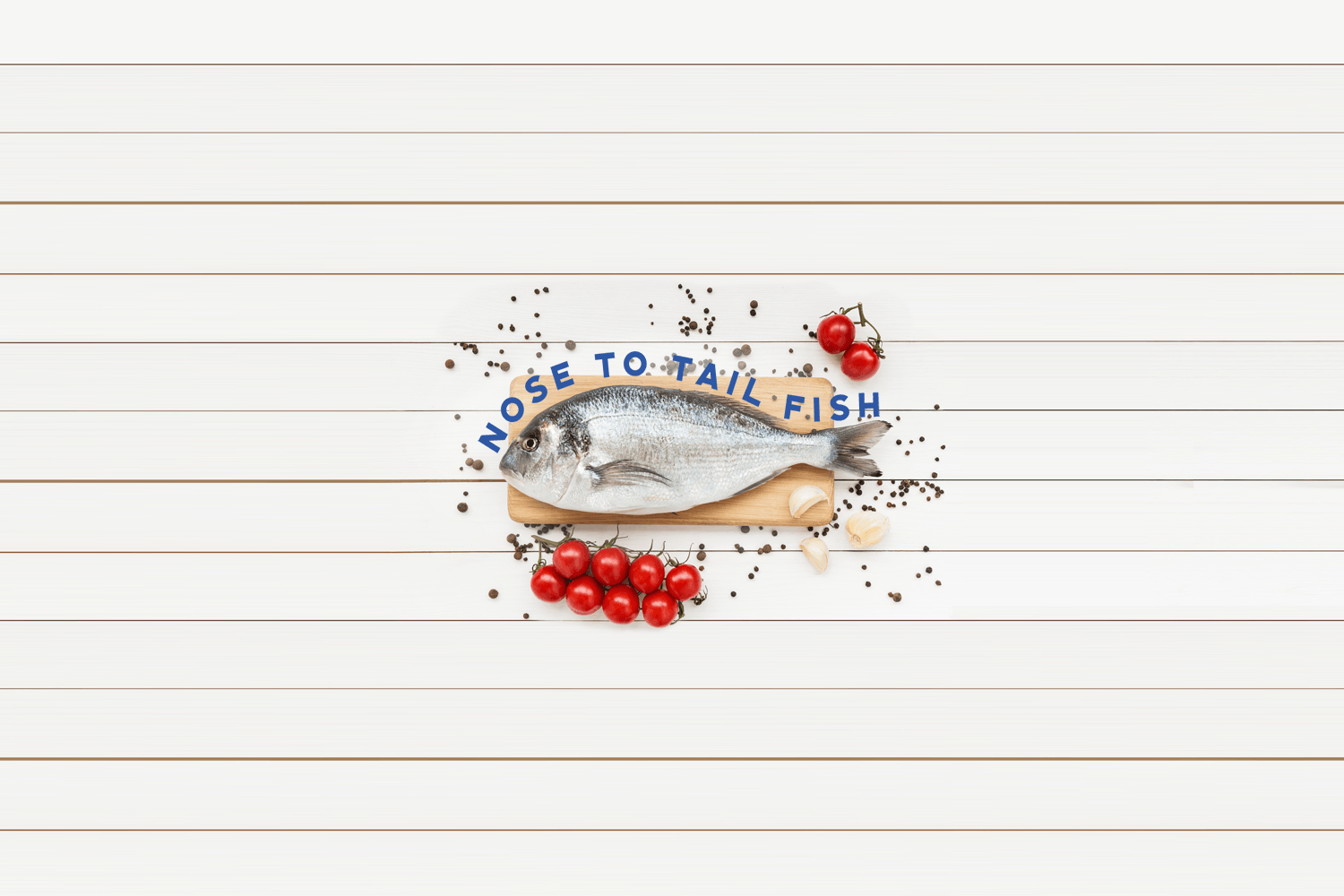





Streat Fish sources its ingredients only from selected local suppliers who share the same sustainable principles and have a strong ethical approach to business. Their goal: engaging consumers, and making them aware of what they are eating, suggesting simple daily actions in order to protect the sea and defend the cultural heritage of coastal populations.
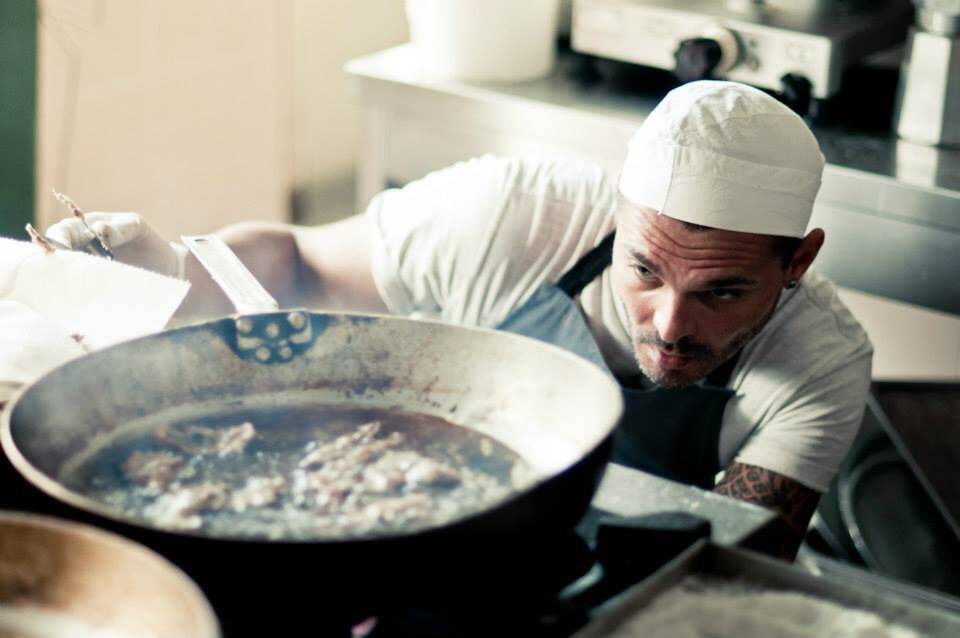
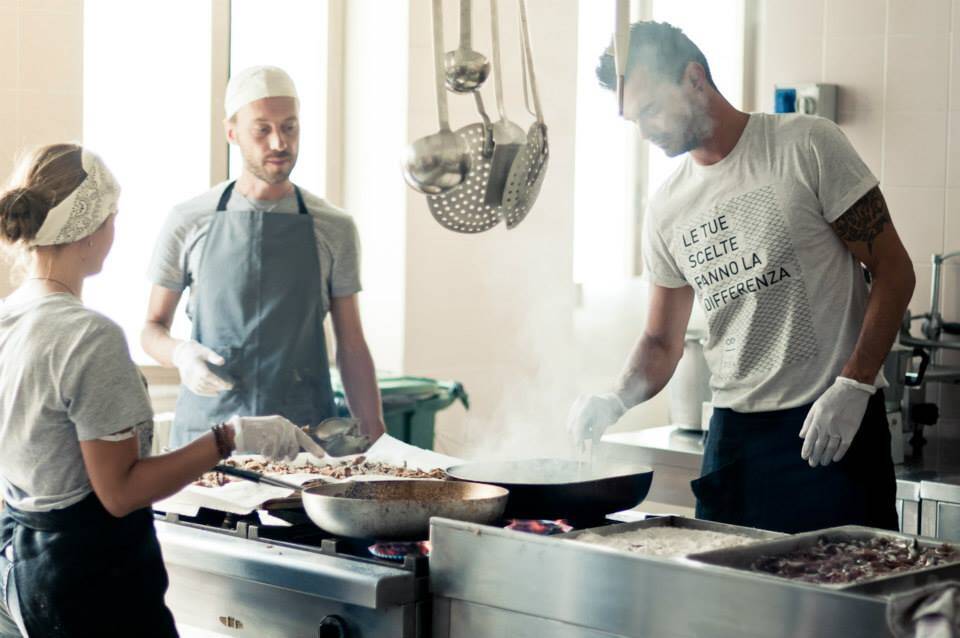
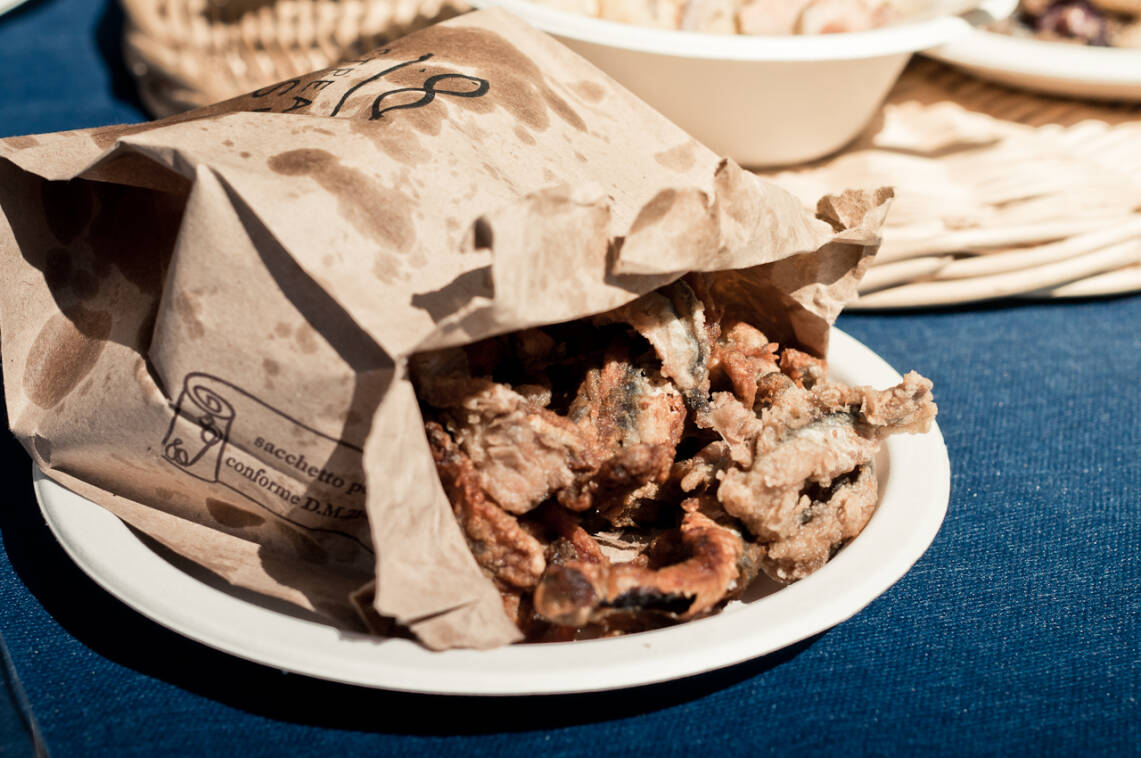
Farm-to-table, seasonality, ethics and sustainability: these are the principles of Streat Fish, a street-food concept born in the Italian city of Turin. After the success in Italy, this concept is now expanding to Tallin, Estonia. The menu features local ingredients of the Mediterranean and Baltic tradition and offers soups, fried fish, hot fish dishes accompanied by local veggies or couscous, and the Streat Fish specialty: the Panozzo, a cold sandwich stuffed with fish cream or fish patty.
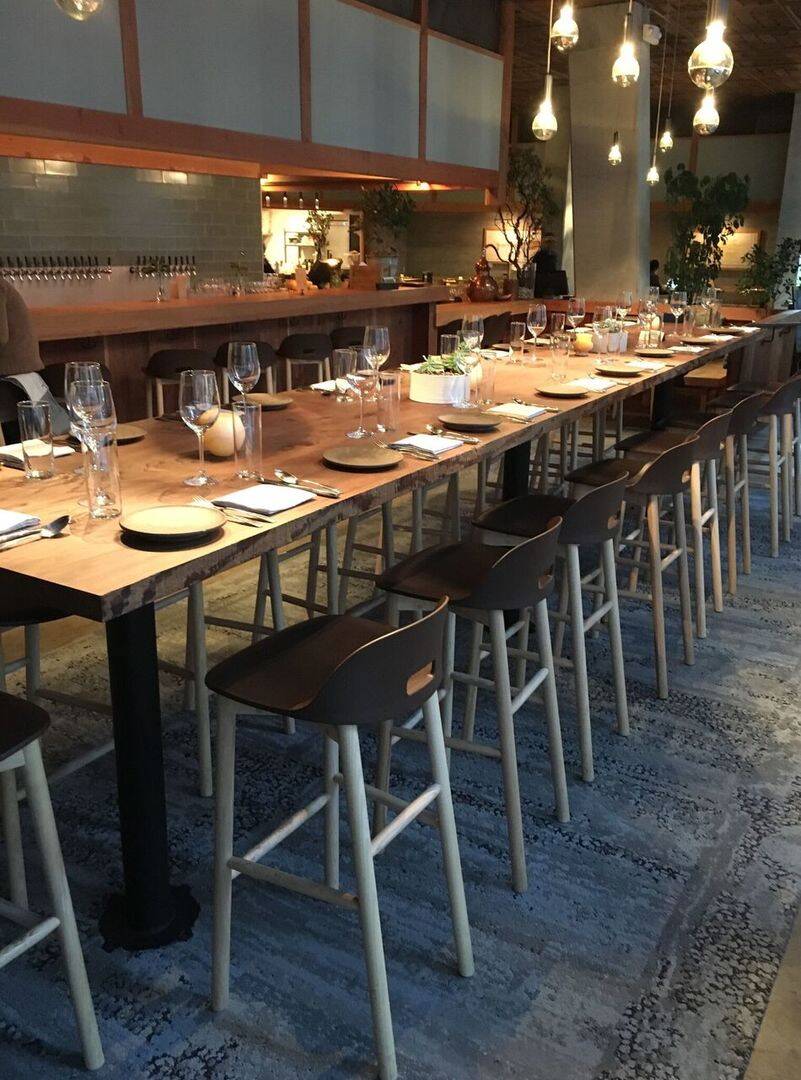

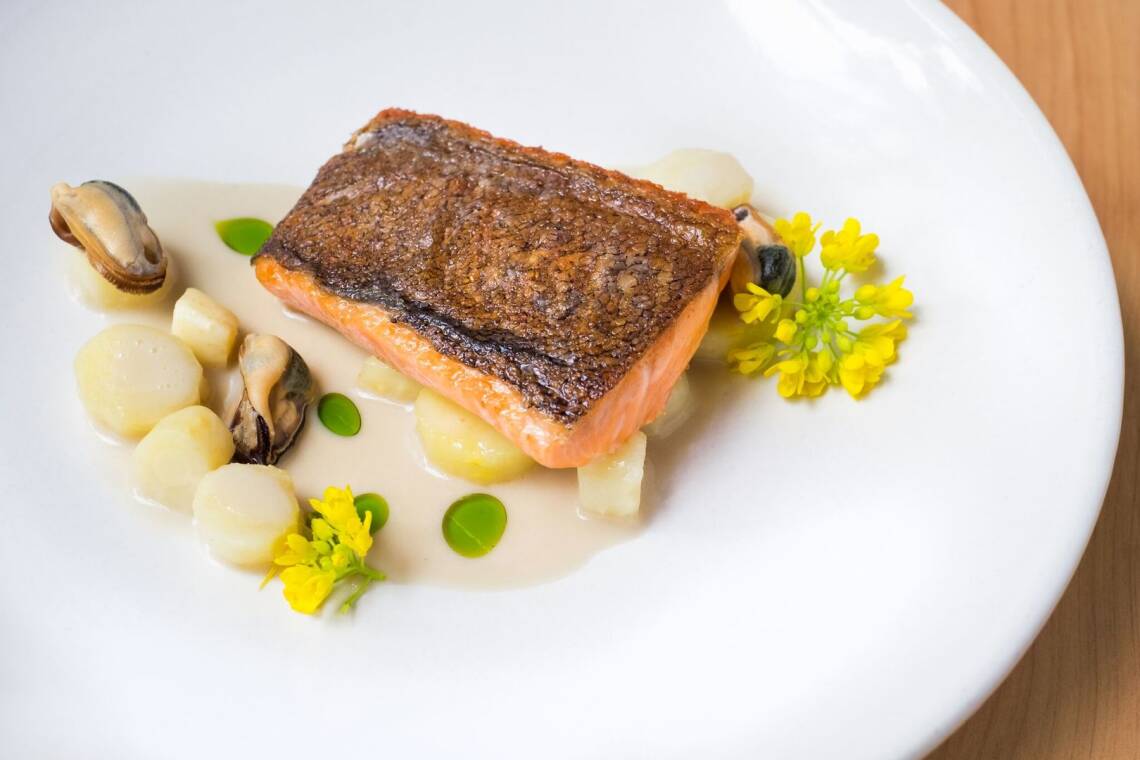
“Fighting climate change with delicious food and drinks”, is the motto of Anthony Myint and Karen Leibowitz, founders of the closed-loop restaurant The Perennial in San Francisco, California. They embraced the challenge of designing a restaurant that makes environmental preservation its focal point. The ingredients are sourced from local farmers who employ regenerative practices and from the restaurant’s very own 2,000-square-foot (186-square-meter) aquaponics greenhouse. The menu offers the same trout that contributes to the fertilization of the soil where the herbs and vegetables used in the food are grown.
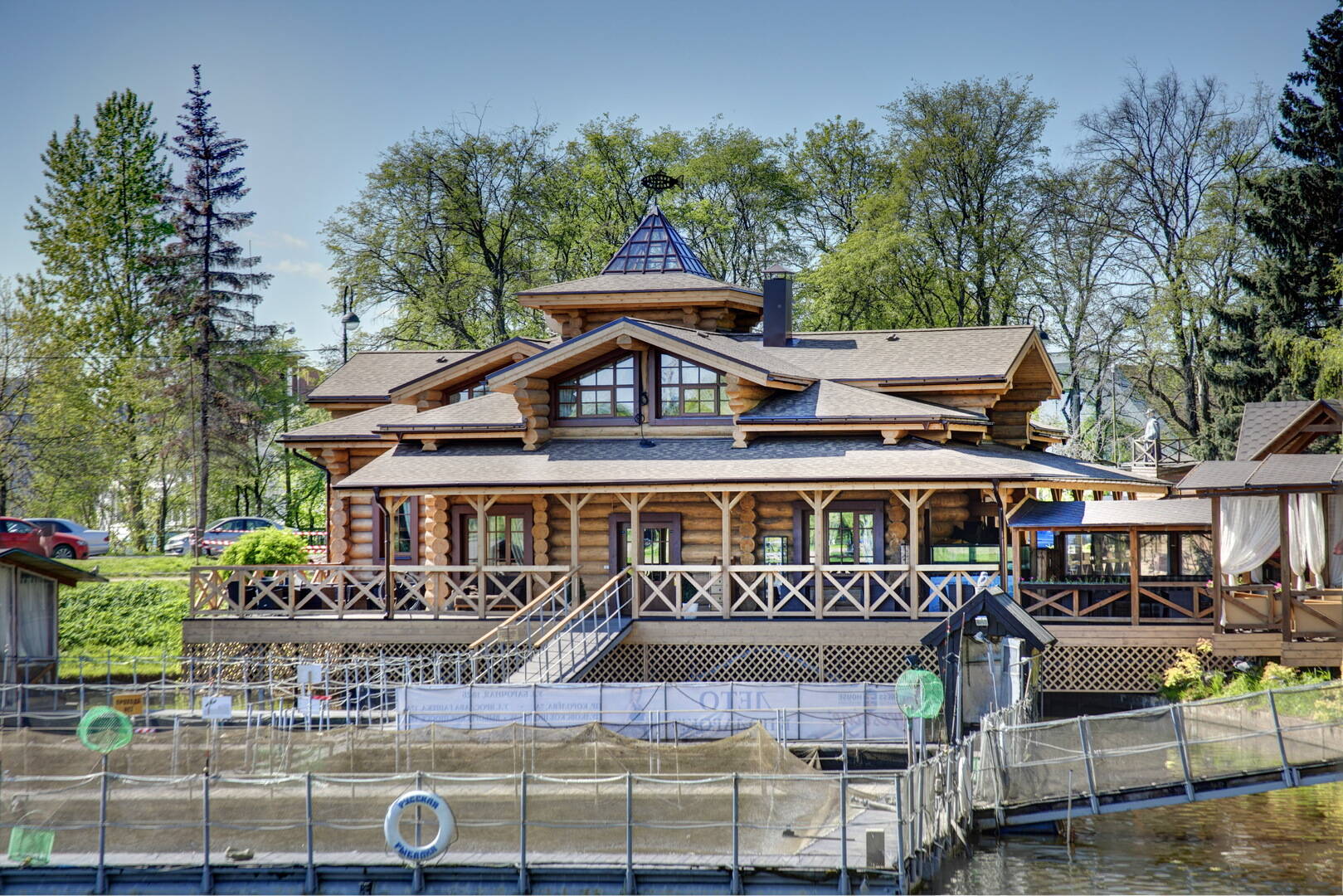
The Russian fish restaurant Russkaya Rybalka (Russian Fishing) is located on the trendy Krestovsky Island in the Russian city of Saint Petersburg. The restaurant offers its guests the opportunity to fish their own meal in the surrounding ponds on the island. The fish and other traditional Russian dishes are then prepared by the chefs in the kitchen and served in the main dining cottage or in the small wooden huts along the ponds available for private dining.
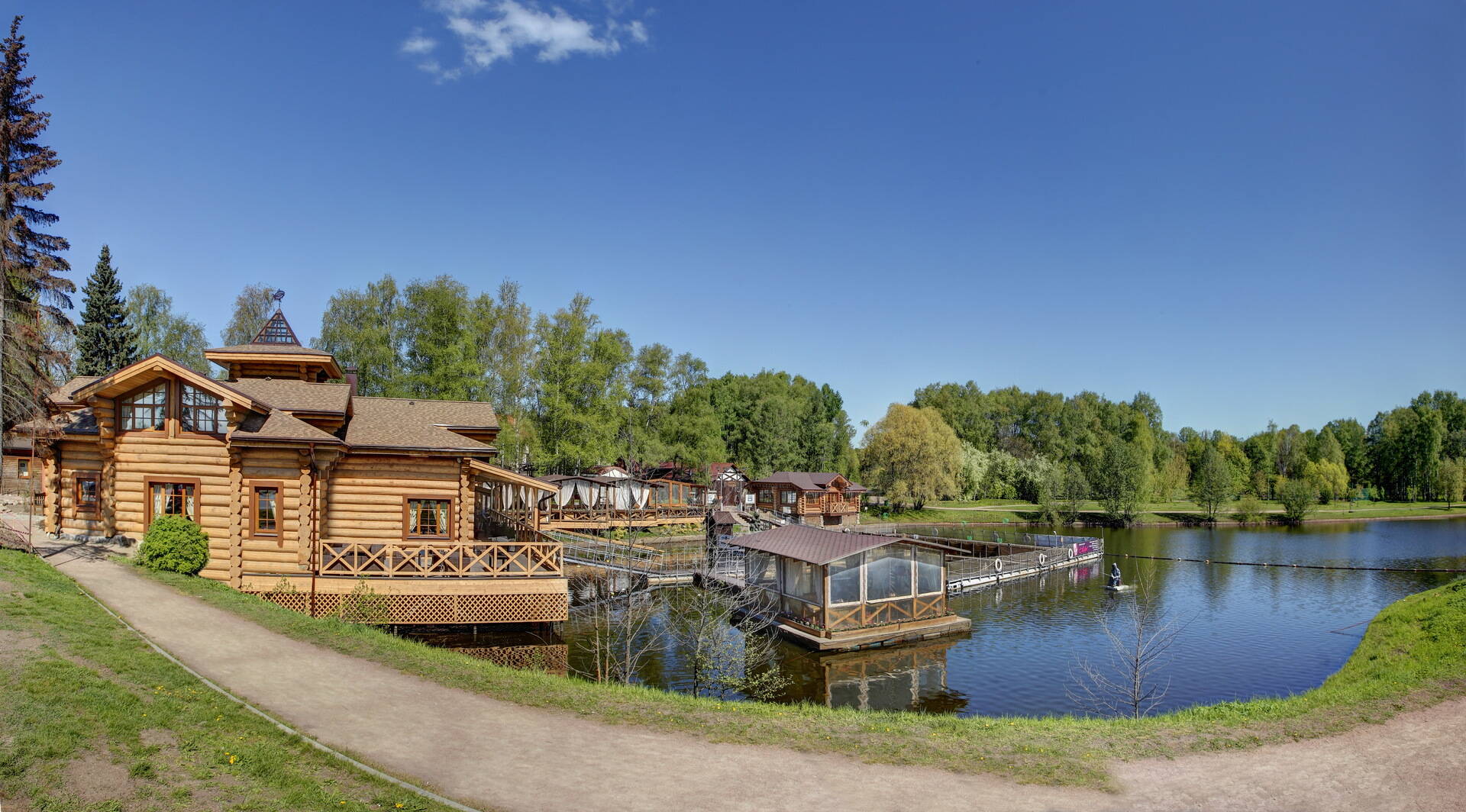
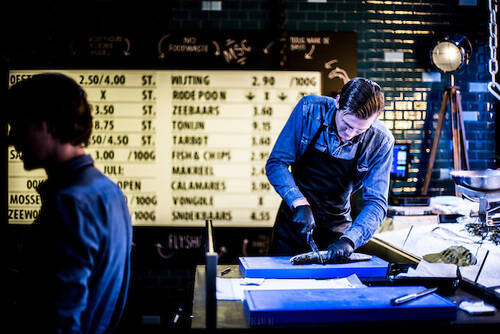
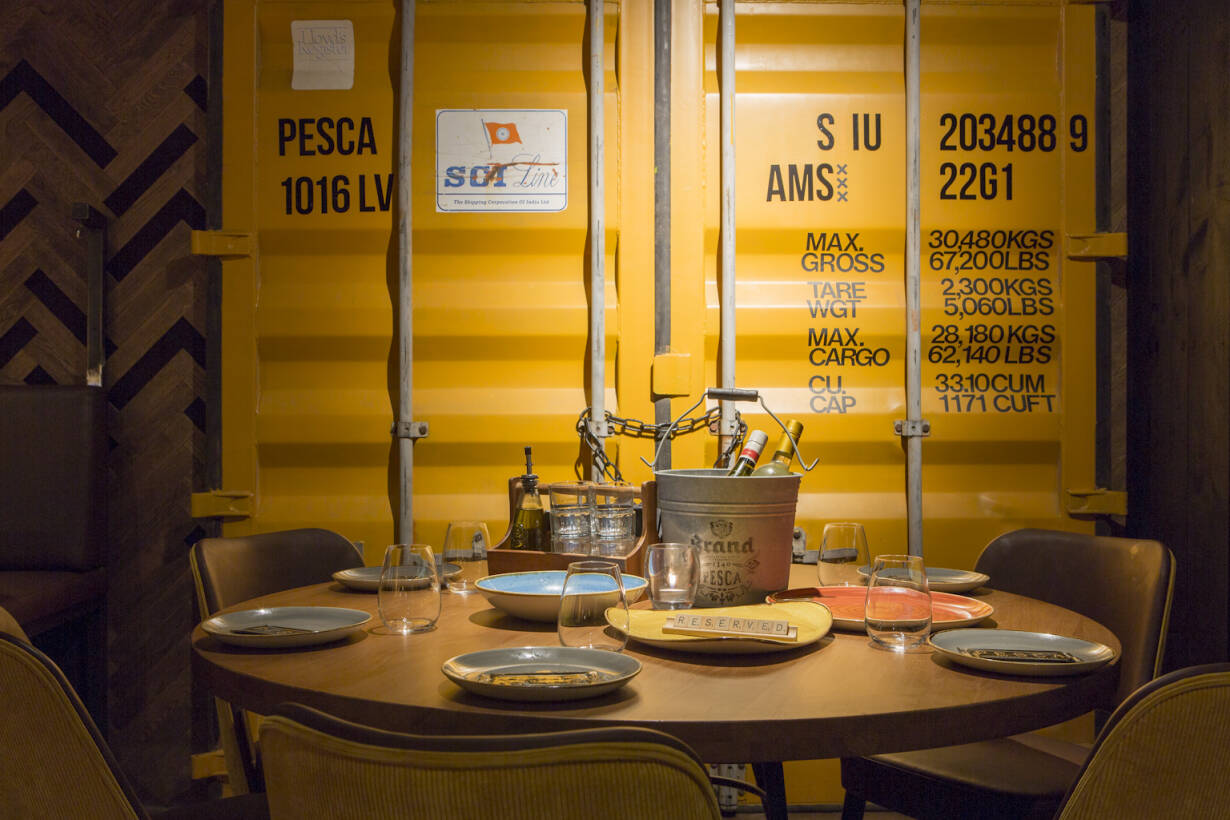
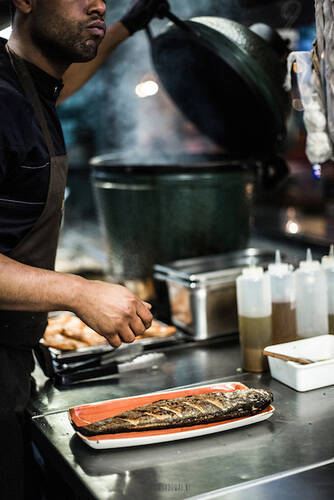
It isn’t a fish market, it isn’t a restaurant, and it isn’t a conventional fine dining experience. The Amsterdam restaurant Pesca invites its guests to enjoy, what they call “the theatre of fish”.
The cosy yet trendy concept serves freshly caught, prime quality seafood at market prices. The guests choose their fish at the fish counter, where the fish are presented in large bowls of ice, just like at the market. After choosing their fish and the side dishes guests pick up their orders at the open kitchen a few minutes later. Pesca’s fish supplier has a sustainable seafood certification by the Marine Stewardship Council: a global, independent non-profit organization devoted to maintaining fish stocks and healthy marine life conditions.
Born from the desire to make gourmet fish available to anyone in a fast casual environment, Pescaria opened its doors in the beautiful fishing village of Polignano a Mare in the Italian region of Puglia in 2015. The seasonal menu, which has been designed by chef Lucio Mele, is an ode to the local traditional Pugliese cuisine.
It proposes a variety of fast food options all starring freshly caught Adriatic fish. All dishes come with Pugliese semolina bread made daily, and locally sourced vegetables and cheeses. Recently the company opened a second restaurant in Milan, to serve the people in the city the real taste of Pugliese fish.
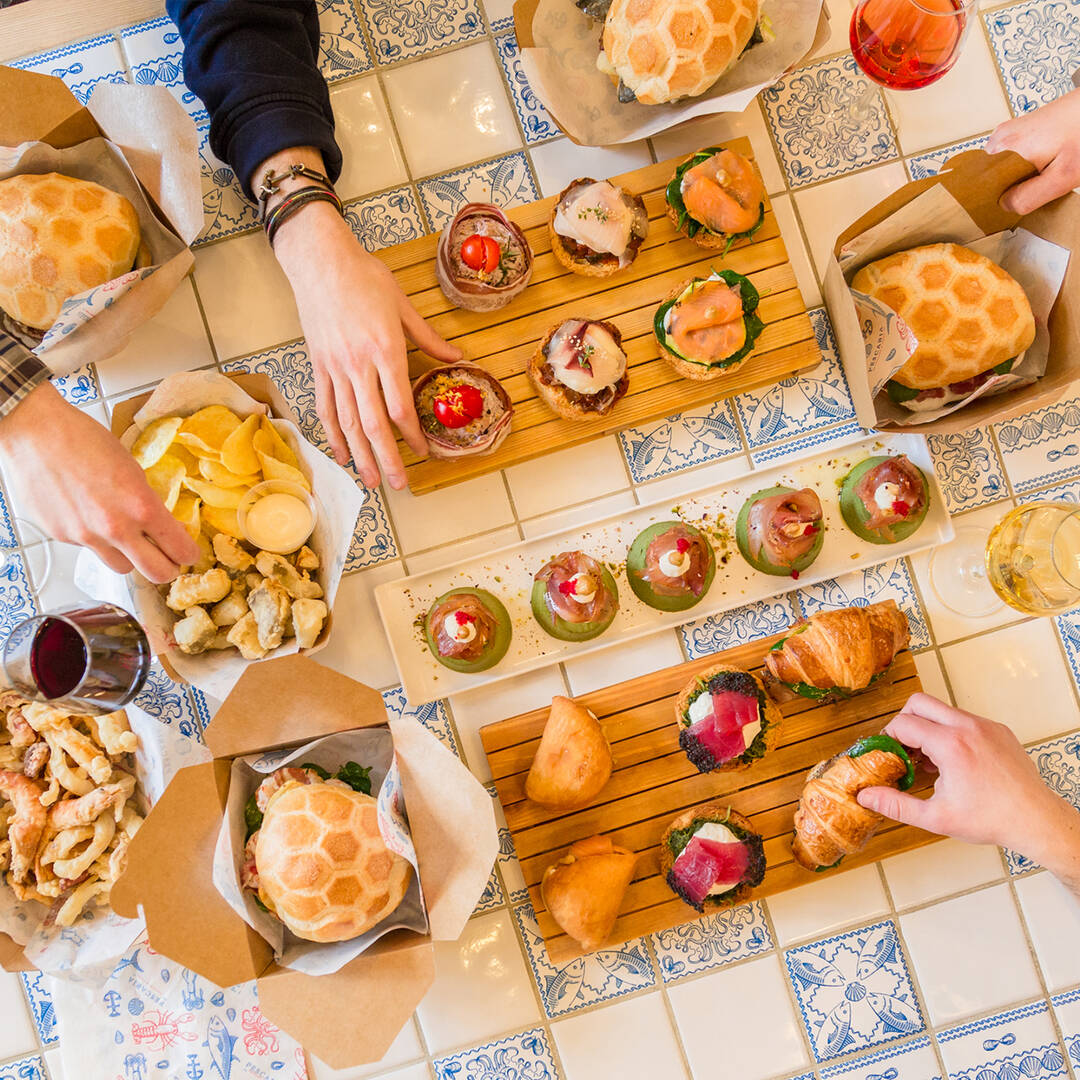

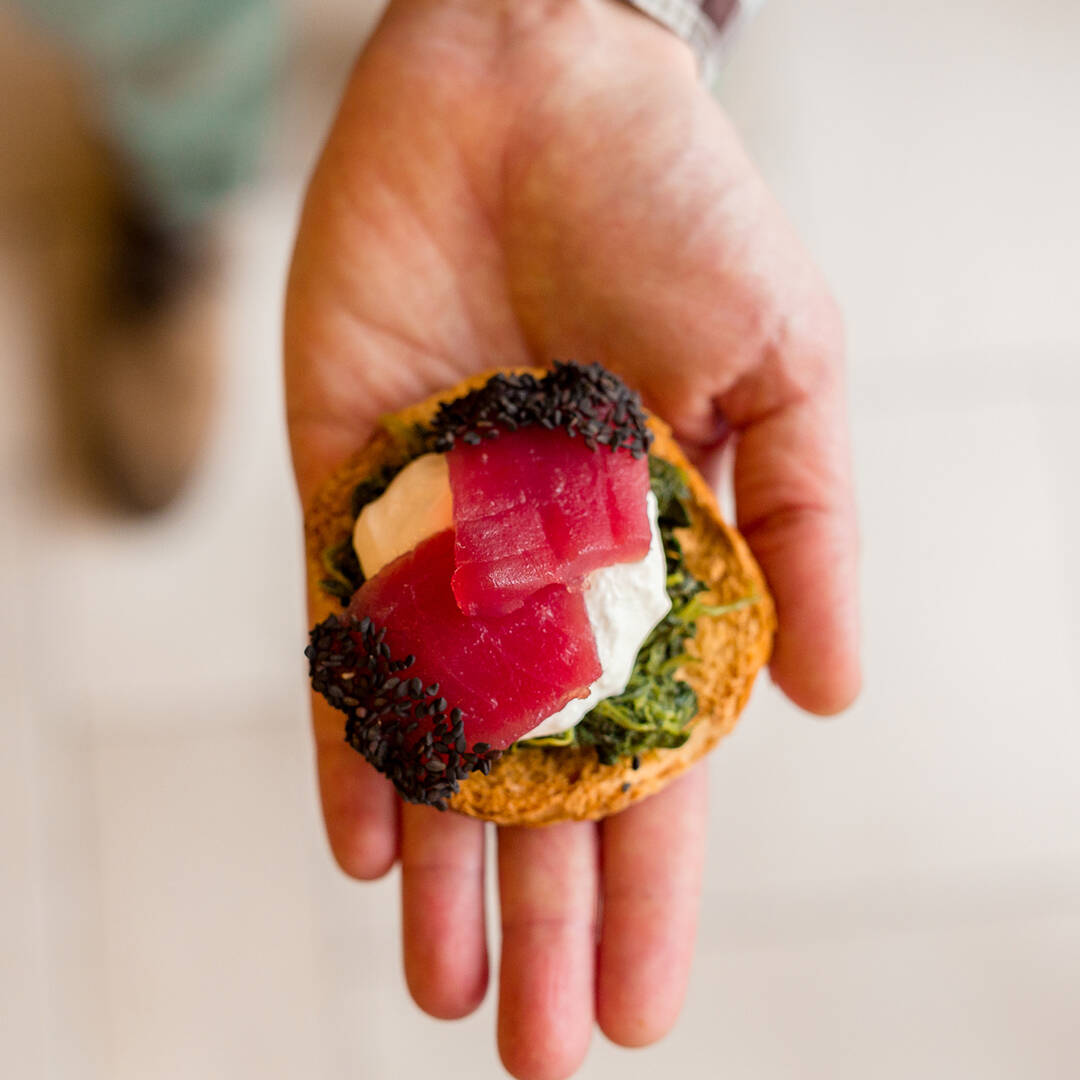
Bycatch and whole fish concepts from around the world.
Fish is one of the most versatile products in our diet. However, many chefs do not know how to best make use of all parts of a fish in a dish, and many companies do not know how to best breed fish. These concepts do. These are some of the world’s latest sustainable concepts when it comes to fish.
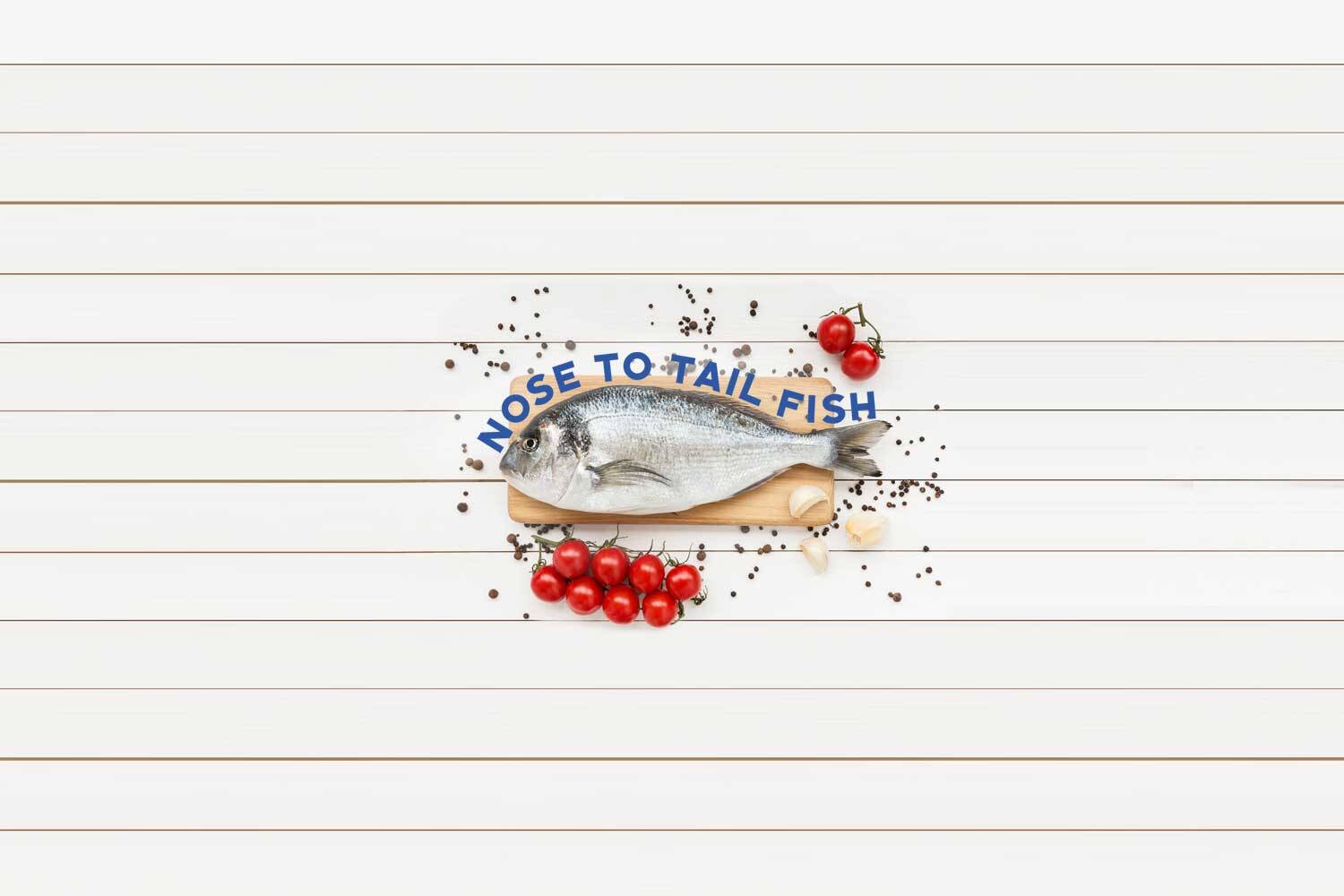
Farm-to-table, seasonality, ethics and sustainability: these are the principles of Streat Fish, a street-food concept born in the Italian city of Turin. After the success in Italy, this concept is now expanding to Tallin, Estonia. The menu features local ingredients of the Mediterranean and Baltic tradition and offers soups, fried fish, hot fish dishes accompanied by local veggies or couscous, and the Streat Fish specialty: the Panozzo, a cold sandwich stuffed with fish cream or fish patty.
Streat Fish sources its ingredients only from selected local suppliers who share the same sustainable principles and have a strong ethical approach to business. Their goal: engaging consumers, and making them aware of what they are eating, suggesting simple daily actions in order to protect the sea and defend the cultural heritage of coastal populations.
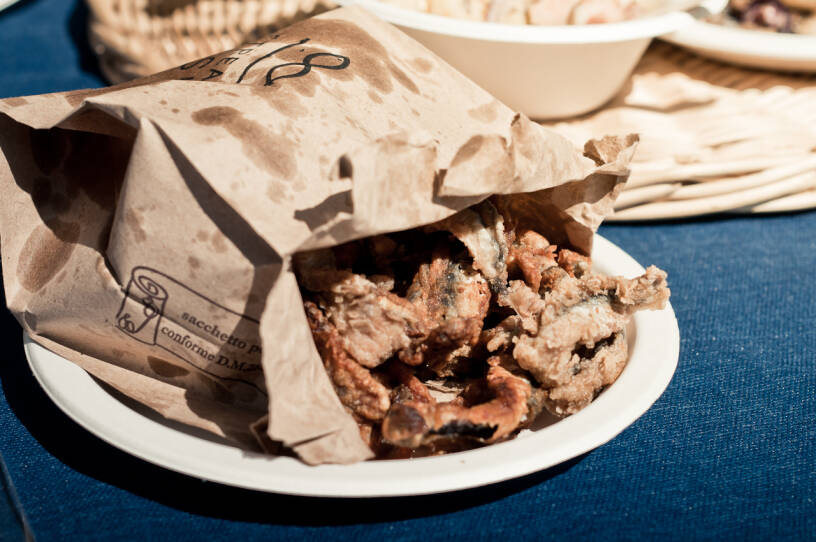
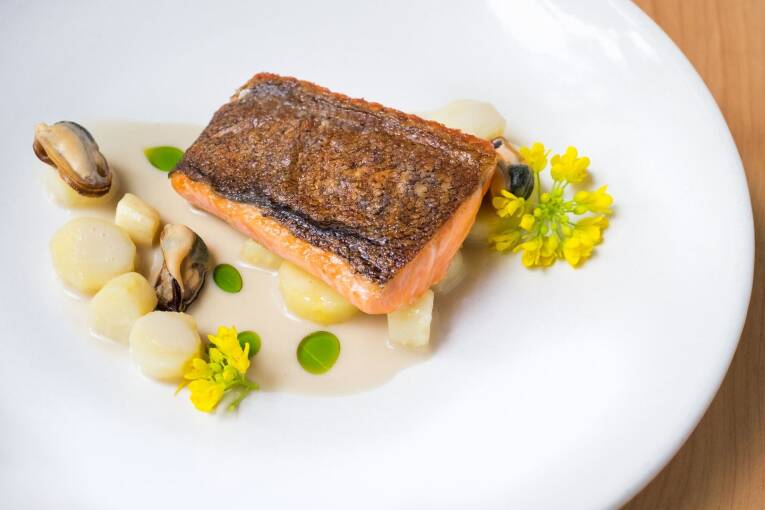
“Fighting climate change with delicious food and drinks”, is the motto of Anthony Myint and Karen Leibowitz, founders of the closed-loop restaurant The Perennial in San Francisco, California. They embraced the challenge of designing a restaurant that makes environmental preservation its focal point. The ingredients are sourced from local farmers who employ regenerative practices and from the restaurant’s very own 2,000-square-foot (186-square-meter) aquaponics greenhouse. The menu offers the same trout that contributes to the fertilization of the soil where the herbs and vegetables used in the food are grown.
The Russian fish restaurant Russkaya Rybalka (Russian Fishing) is located on the trendy Krestovsky Island in the Russian city of Saint Petersburg. The restaurant offers its guests the opportunity to fish their own meal in the surrounding ponds on the island. The fish and other traditional Russian dishes are then prepared by the chefs in the kitchen and served in the main dining cottage or in the small wooden huts along the ponds available for private dining.
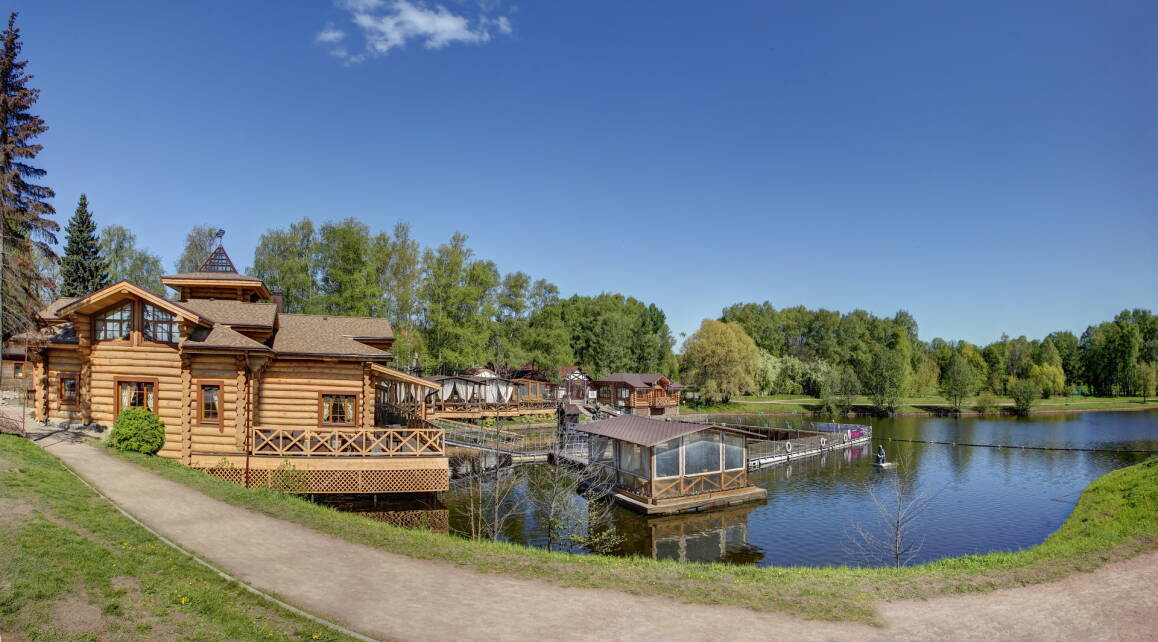
It isn’t a fish market, it isn’t a restaurant, and it isn’t a conventional fine dining experience. The Amsterdam restaurant Pesca invites its guests to enjoy, what they call “the theatre of fish”.
The cosy yet trendy concept serves freshly caught, prime quality seafood at market prices. The guests choose their fish at the fish counter, where the fish are presented in large bowls of ice, just like at the market. After choosing their fish and the side dishes guests pick up their orders at the open kitchen a few minutes later. Pesca’s fish supplier has a sustainable seafood certification by the Marine Stewardship Council: a global, independent non-profit organization devoted to maintaining fish stocks and healthy marine life conditions.
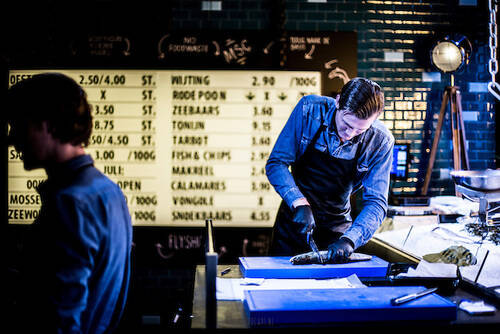
Born from the desire to make gourmet fish available to anyone in a fast casual environment, Pescaria opened its doors in the beautiful fishing village of Polignano a Mare in the Italian region of Puglia in 2015. The seasonal menu, which has been designed by chef Lucio Mele, is an ode to the local traditional Pugliese cuisine.





